




There’s nothing quite like wrapping yourself in a soft and fluffy towel after a relaxing bath. But what if the fabric softener you’ve been using is actually damaging your towels? This is a common concern among many people who want to take good care of their towels and make them last longer.
Some believe that fabric softener creates a coating on the towels that reduces their absorbency and makes them less effective at drying. Others worry that the chemicals in fabric softener can weaken the fibers of the towel, leading to decreased durability over time.
So, is there any truth to these claims? It’s important to separate fact from fiction when it comes to the impact of fabric softener on towels. In this article, we will explore the science behind these claims and provide you with the information you need to make an informed decision about whether or not to use fabric softener on your towels.
Stay tuned to discover the truth about fabric softener and its potential effects on your beloved towels. Don’t let misinformation ruin your bath time bliss!
The Impact of Fabric Softener on Towels
Many people enjoy the luxurious feeling of soft, fluffy towels after a bath or shower. Fabric softener is a common product used to enhance the softness and scent of laundry, including towels. However, there is a ongoing debate about whether fabric softener is damaging to towels.
The Benefits of Fabric Softener
Fabric softener works by coating the fibers of fabric, including towels, with a layer of lubrication. This makes the fabric feel softer and reduces static electricity. Additionally, fabric softener often has a pleasant scent that can linger on towels, providing a fresh aroma.
Some proponents of using fabric softener on towels argue that it helps to maintain their softness, making them more comfortable to use. They believe that the lubrication provided by the softener helps to prevent the fibers from becoming stiff and scratchy over time.
The Potential Damaging Effects
On the other hand, there are those who claim that fabric softener can actually be damaging to towels. One potential issue is that the coating left by fabric softener can reduce the absorbency of towels, making them less effective in drying the body after a bath or shower.
Another concern is that fabric softener can build up on towels over time, leading to a decrease in their fluffiness. This build-up can also contribute to a dingy appearance, as it can attract dirt and debris from washing and drying cycles.
Some people also report that using fabric softener on towels can lead to an increase in skin irritation and allergies. This may be particularly true for individuals with sensitive skin or those prone to eczema.
Alternatives to Fabric Softener
If you are concerned about the potential damaging effects of fabric softener on your towels, there are alternatives you can try. One option is to use vinegar as a natural fabric softener. Adding a small amount of white vinegar to the rinse cycle can help to soften towels without leaving a residue.
Another alternative is to simply skip the fabric softener altogether and rely on a good-quality detergent to clean your towels. By washing them with a gentle detergent and using the appropriate drying settings, you can help maintain their softness and absorbency without the use of fabric softener.
In conclusion, the impact of fabric softener on towels is a topic of debate. While it can provide benefits such as softness and a pleasant scent, it may also have potential damaging effects such as decreased absorbency and build-up over time. Consider your own preferences and concerns when deciding whether or not to use fabric softener on your towels.
How Fabric Softener Affects Towel Absorbency
Many people enjoy the soft and luxurious feel of fabric softener on their laundry. However, when it comes to towels, using fabric softener may not be the best idea. While it can make your towels feel fluffy and smell wonderful, fabric softener can actually decrease their absorbency.
1. Coating Effect
Fabric softener works by coating the fibers of your towels with a thin layer of chemicals. This coating reduces friction between the fibers, resulting in a softer texture. However, this coating can also have a negative impact on absorbency. It creates a barrier that prevents water from being absorbed into the fibers effectively.
2. Residue Buildup
Over time, the chemicals in fabric softener can build up on your towels. This residue can further reduce their absorbency. The more you use fabric softener, the thicker the layer of residue becomes, making it even more difficult for the towels to soak up water.
3. Towel Quality
The effect of fabric softener on absorbency can also depend on the quality of the towels. Lower-quality towels with looser or more open fibers are likely to be more affected by fabric softener. Higher-quality towels with denser and more tightly woven fibers may not be as impacted, but they can still experience a decrease in absorbency over time.
4. Alternatives to Fabric Softener
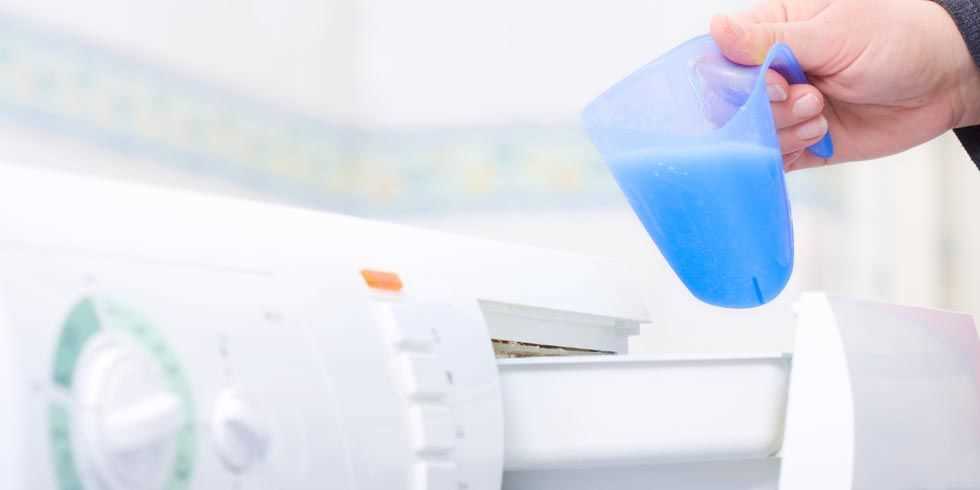
If you want to maintain the absorbency of your towels while still enjoying a soft and fresh feel, there are alternatives to fabric softener that you can try. One option is to use vinegar as a natural fabric softener. Simply add half a cup of white vinegar during the rinse cycle to help soften your towels without leaving residue. Another option is to skip fabric softener altogether and rely on quality detergent and proper drying techniques to keep your towels soft and absorbent.
Conclusion
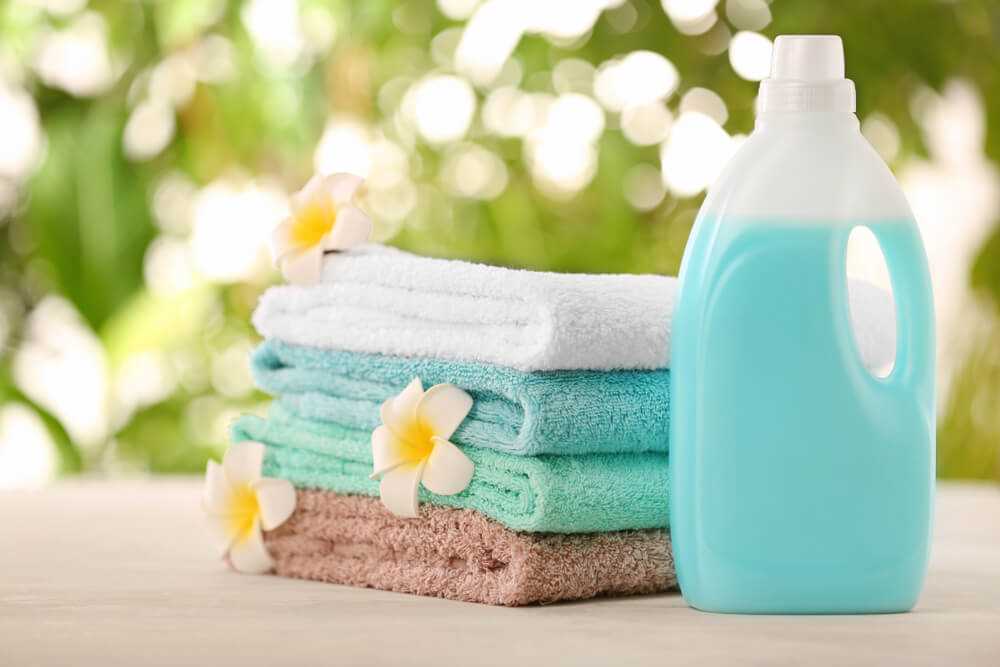
Fabric softener can indeed have a negative impact on the absorbency of towels. The coating effect and residue buildup can reduce their ability to soak up water effectively. However, the extent to which fabric softener affects absorbency also depends on the quality of the towels. It’s important to consider alternatives to fabric softener if you want to maintain the optimal absorbency of your towels while still enjoying their softness.
Common Misconceptions About Fabric Softener and Towels
1. Fabric Softener Makes Towels Less Absorbent
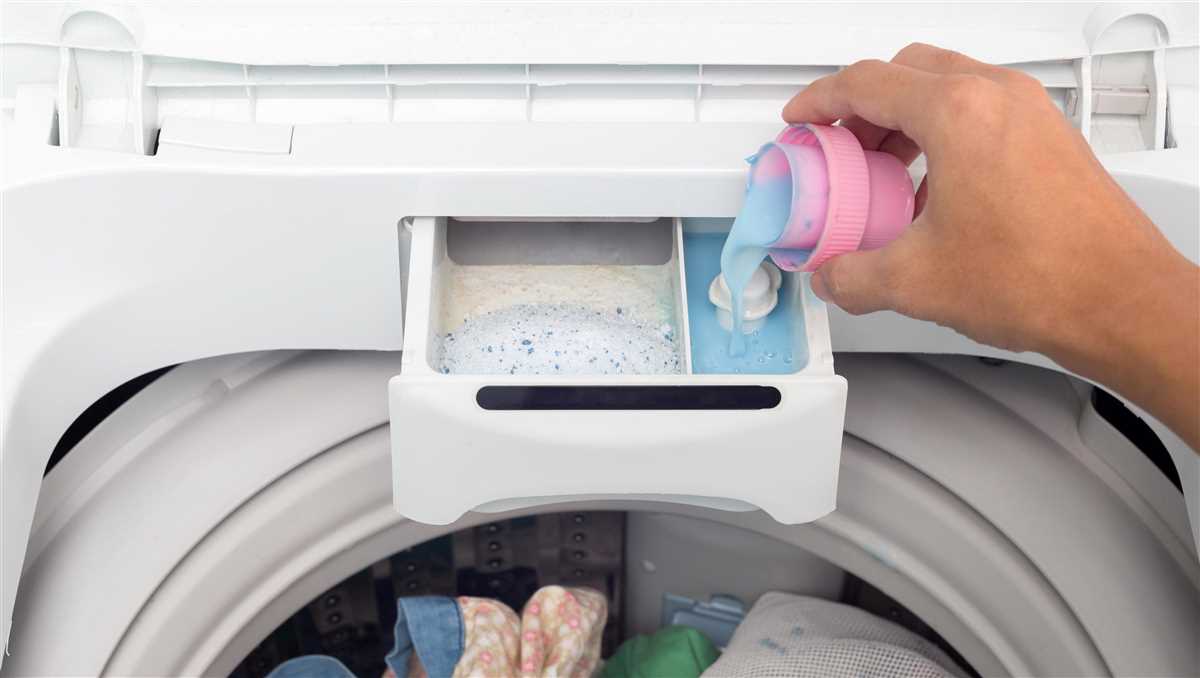
One common misconception about fabric softener is that it makes towels less absorbent. However, this is not entirely true. While it is true that fabric softener can leave a residue on towels, which may temporarily reduce their absorbency, this can easily be resolved by washing the towels without fabric softener. Additionally, using less fabric softener or opting for a fabric softener specifically designed for towels can help minimize any negative effects on absorbency.
2. Fabric Softener Causes Towels to Lose Their Softness
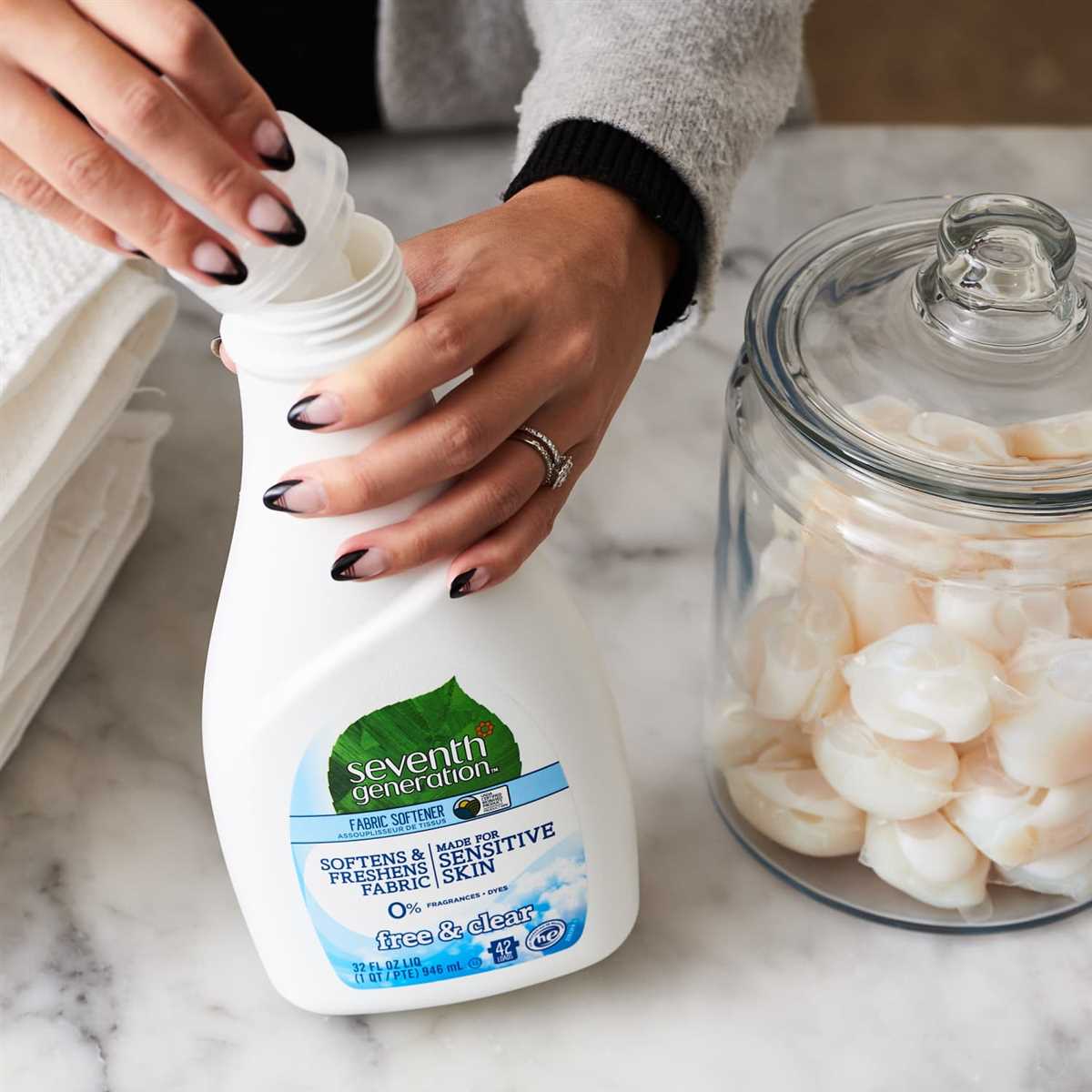
Another misconception is that fabric softener causes towels to lose their softness over time. While it is true that fabric softener can build up on towels and make them feel less soft, this can be easily remedied by washing the towels without fabric softener. Additionally, using a high-quality fabric softener and following the recommended dosing instructions can help maintain the softness of towels without causing any negative effects.
3. Fabric Softener Damages Towel Fibers
Some people believe that fabric softener can damage towel fibers, leading to decreased durability and longevity. However, there is no scientific evidence to support this claim. Fabric softener primarily works by coating the fibers of fabrics, including towels, to make them feel softer and reduce static. It does not contain any ingredients that can actively damage the fibers of towels. As long as fabric softener is used correctly and in moderation, it should not cause any damage to towel fibers.
4. Fabric Softener Makes Towels Less Hygienic
There is a misconception that fabric softener can make towels less hygienic by coating them with a layer that traps bacteria and prevents them from being properly cleaned. However, research has shown that this is not the case. Fabric softeners do not create a barrier that prevents thorough cleaning of towels. As long as towels are washed regularly using appropriate detergent and proper washing techniques, they will remain clean and hygienic, regardless of whether fabric softener is used.
5. Fabric Softener is Necessary for Soft and Fresh-Smelling Towels
While fabric softener can contribute to the softness and fresh scent of towels, it is not necessary. There are alternative methods to achieve the same results, such as using vinegar or baking soda during the rinse cycle, or opting for towels made from naturally soft and absorbent materials, such as bamboo or microfiber. These methods can help maintain softness and freshness without the need for fabric softener.
Conclusion
It is important to separate fact from fiction when it comes to fabric softener and its effects on towels. While fabric softener can have some temporary effects on absorbency and softness if not used correctly, it is not inherently damaging to towel fibers or their overall quality. Ultimately, the decision to use fabric softener on towels is a personal one. By understanding the common misconceptions and facts surrounding fabric softener and towels, individuals can make informed choices based on their preferences and needs.
Alternatives to Fabric Softener for Towels
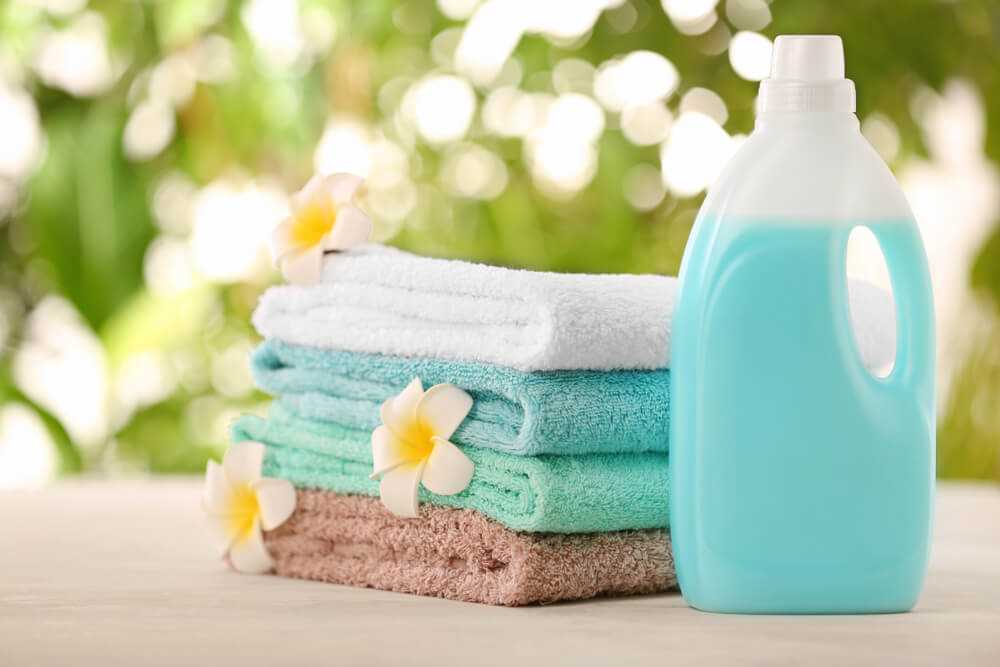
If you want to keep your towels soft and absorbent without using fabric softener, there are several alternative methods you can try. These alternatives are not only better for your towels, but they are also environmentally friendly.
1. Vinegar
Vinegar is a natural fabric softener that can help remove any residue from your towels, leaving them soft and fluffy. Simply add half a cup of white vinegar to your washing machine during the rinse cycle. You can also soak your towels in a mixture of water and vinegar for an hour before washing them.
2. Baking Soda
Baking soda is another effective alternative to fabric softener. It not only softens your towels, but it also helps remove any odors. Add half a cup of baking soda to your washing machine along with your regular detergent. You can also create a paste with water and baking soda and massage it into your towels before washing them.
3. Wool Dryer Balls
Wool dryer balls are a great alternative to fabric softener. They help reduce drying time, soften your towels, and prevent static cling. Simply add a few wool dryer balls to your dryer along with your towels. The balls will help fluff up your towels, making them soft and absorbent.
4. Air Drying
If possible, consider air drying your towels instead of using a dryer. Hanging your towels outside or placing them on a drying rack will help maintain their softness and absorbency. The natural air and sunlight will also help remove any odors.
5. Natural Fabric Softener Sheets
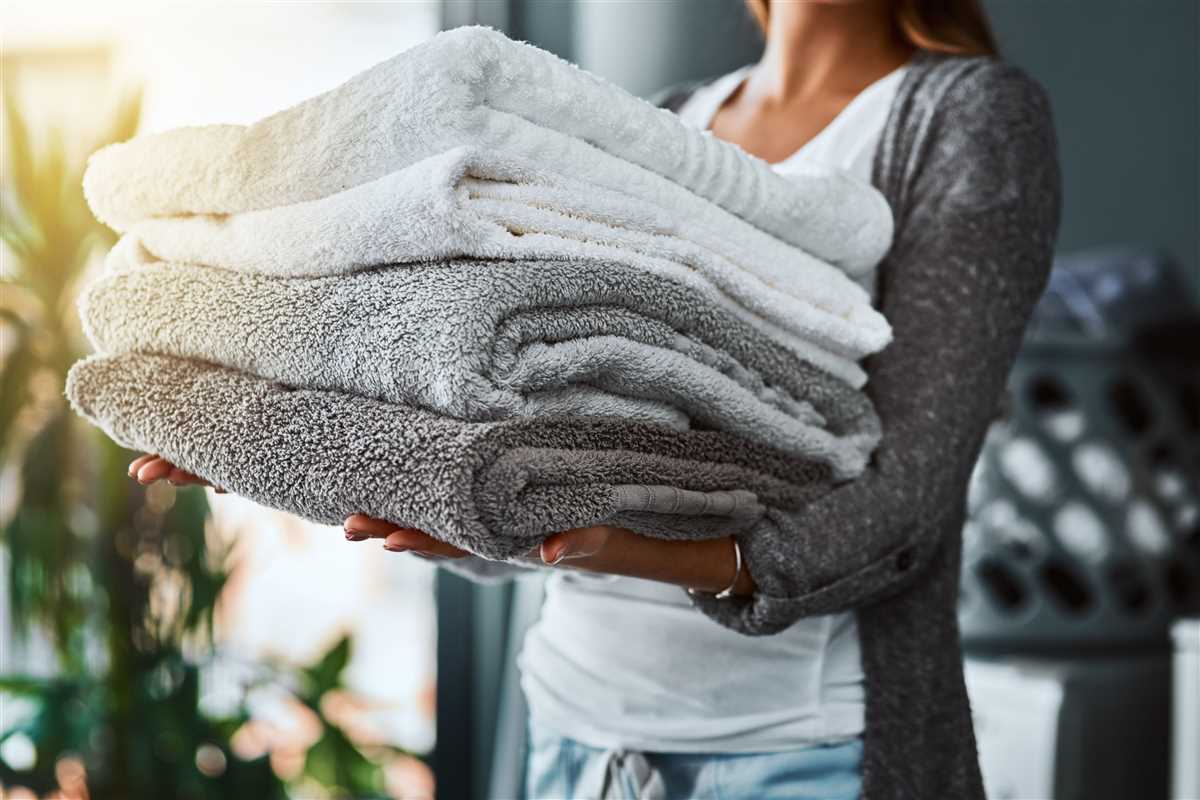
If you prefer the convenience of fabric softener sheets, there are natural and eco-friendly options available. Look for fabric softener sheets made from plant-based materials, such as bamboo or cotton. These sheets are biodegradable and free from harsh chemicals.
By using these alternatives to fabric softener, you can keep your towels soft, absorbent, and in excellent condition for a long time. Experiment with different methods to find the one that works best for you.
Proper Care and Maintenance of Towels for Longevity
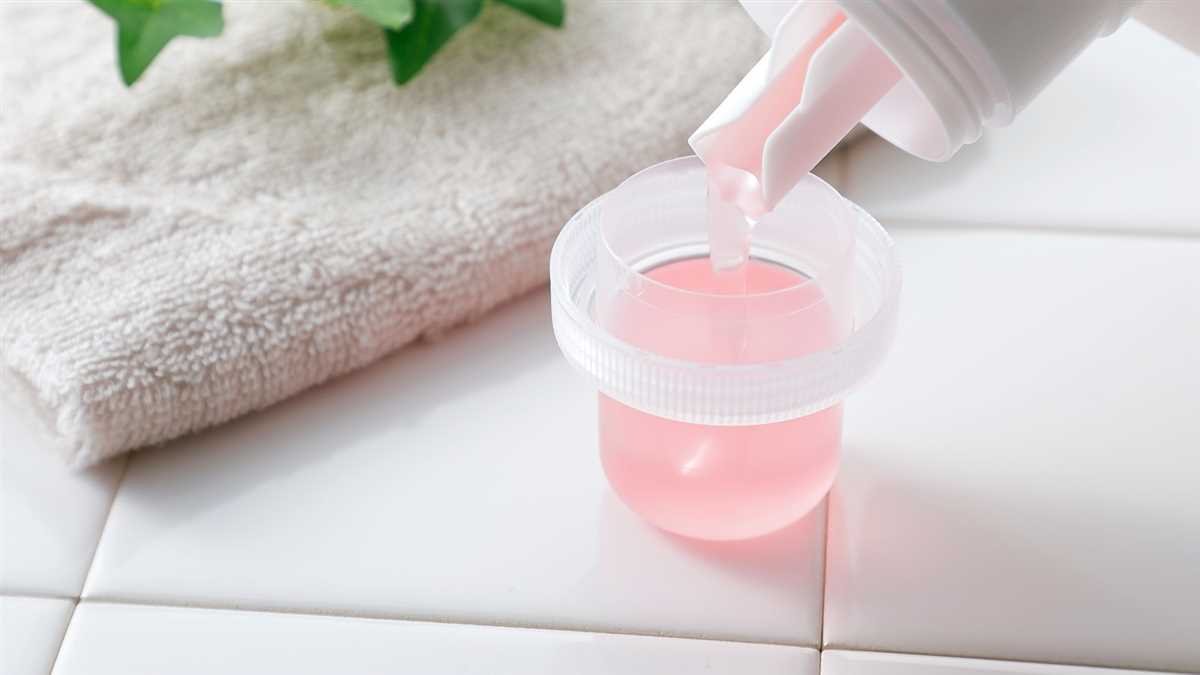
Towels are an essential part of our daily lives, and proper care and maintenance are crucial for ensuring their longevity. By following a few simple steps, you can keep your towels soft, absorbent, and looking like new for a long time.
1. Washing
Start by reading the care label on your towels. Some towels are machine washable, while others require hand washing. Sort your towels by color to prevent dye transfer and wash them separately from other clothing items.
Use a mild detergent that is suitable for towels and set the washing machine to a gentle cycle. Avoid using bleach or fabric softener, as these can damage the fibers and reduce the towel’s absorbency.
2. Drying
Avoid over-drying your towels as it can result in stiffness and reduce their absorbency. Instead, remove them from the dryer while they are still slightly damp and allow them to air dry completely.
If you prefer using a dryer, set it to a low or medium heat setting. Dryer sheets are not necessary and can leave a residue on the towels, so it’s best to avoid them.
3. Storage
Proper storage is essential to prevent mildew and maintain the quality of your towels. Ensure that your towels are completely dry before folding and storing them in a well-ventilated area.
Avoid tightly stacking or overcrowding your towels, as this can lead to wrinkling and reduce their softness. Instead, consider rolling them up, which helps save space and maintains their fluffiness.
4. Regular Cleaning
To maintain the freshness and absorbency of your towels, periodically clean your washing machine. Run an empty cycle with hot water and use a vinegar solution or washing machine cleaner to remove any buildup or residue.
5. Avoiding Harsh Chemicals
Harsh chemicals, such as bleach and fabric softener, can damage the fibers of your towels and reduce their absorbency over time. Instead, use natural alternatives like vinegar or baking soda to remove stains and odors.
| No. | Tip |
|---|---|
| 1. | Read and follow the care label instructions. |
| 2. | Sort towels by color and wash them separately. |
| 3. | Use a mild detergent and avoid bleach and fabric softener. |
| 4. | Air dry or use a low to medium heat setting in the dryer. |
| 5. | Ensure towels are completely dry before storing. |
| 6. | Periodically clean your washing machine. |
| 7. | Avoid using harsh chemicals on your towels. |
By following these simple steps for proper care and maintenance, you can enjoy your towels for a longer period, ensuring they remain soft, absorbent, and in excellent condition.
FAQ
Can fabric softener damage towels?
Yes, fabric softener can damage towels. The chemicals in fabric softeners can leave a residue on towels, making them less absorbent over time and reducing their ability to dry quickly.
What are the effects of fabric softeners on towels?
Fabric softeners can cause towels to become less absorbent and less effective at drying. The chemicals in fabric softeners can leave a coating on the towels, which reduces their ability to absorb water and can make them feel less soft and fluffy.
Is it okay to use fabric softener on towels?
It is generally not recommended to use fabric softener on towels. While it may make them feel softer initially, over time, fabric softener can leave a residue on the towels that can reduce their absorbency and effectiveness at drying. It is best to avoid using fabric softener on towels if you want them to remain absorbent and fluffy.
How can I keep my towels soft without using fabric softener?
There are several alternative methods to keep your towels soft without using fabric softener. You can try adding white vinegar to the rinse cycle, which can help remove any residue and keep your towels soft. Additionally, drying your towels on a low heat setting or using dryer balls can also help fluff them up and keep them soft. Finally, avoid using too much detergent and avoid over-drying your towels, as this can make them stiff and less soft.
Are there any natural alternatives to fabric softeners for towels?
Yes, there are natural alternatives to fabric softeners that can be used for towels. One option is to use white vinegar in the rinse cycle, which can help remove any residue and keep your towels soft. Another option is to use baking soda, which can help to soften the towels and remove any odours. Wool dryer balls are also a natural alternative, as they can help to fluff up the towels and keep them soft without the need for chemicals.
Does using fabric softener damage towels?
Yes, using fabric softener can actually damage towels. Fabric softeners can build up on the fibers of the towels, making them less absorbent and less fluffy over time.
How does fabric softener affect the absorbency of towels?
Fabric softener can coat the fibers of towels, making them less capable of absorbing water. This can result in towels that are less effective at drying you off.












